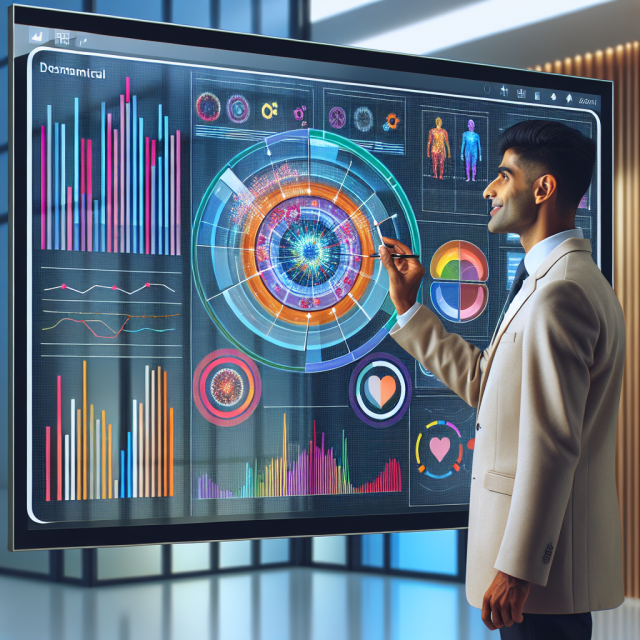Introduction
The pharmaceutical industry is transforming at lightning speed. In 2025, pharmaceutical trends are redefining how brands connect with healthcare professionals (HCPs), patients, and stakeholders. Marketers must adapt to cutting-edge technology, personalized engagement, and regulatory shifts to stay ahead. But what exactly is shaping the future of pharma marketing this year? Let’s dive into the top trends and explore how they’re changing the game.
Table of Contents
AI and Big Data Revolutionizing Pharma Marketing
Artificial intelligence (AI) is the driving force behind modern pharmaceutical marketing. With machine learning and big data analytics, companies can now predict market trends, enhance drug development, and create hyper-personalized campaigns. AI-powered chatbots, predictive modeling, and automated sales reps are reshaping HCP engagement and patient support.
Big data analytics plays a crucial role in identifying prescribing patterns, understanding patient behaviors, and tailoring content strategies. For example, pharma giants like Pfizer and Novartis leverage AI to optimize marketing outreach and drug commercialization. Imagine AI as a crystal ball—it doesn’t just reflect what’s happening now but predicts the future of pharma marketing.
AI-driven tools can:
- Analyze patient insights to tailor drug promotions
- Enhance HCP-targeted marketing using behavioral data
- Automate regulatory compliance monitoring
- Improve sales force effectiveness with AI-generated recommendations
Marketers who embrace AI will gain a competitive edge in an industry where precision and speed define success.
Omnichannel Strategies for Deeper HCP and Patient Engagement
Pharma marketing has moved beyond traditional advertising. Today, omnichannel strategies are critical for reaching both HCPs and patients across multiple touchpoints—digital platforms, social media, telemedicine, and even in-person interactions. The key is consistency and personalization across all channels.
A great example is how Merck and AstraZeneca use AI-driven content to engage physicians via targeted LinkedIn campaigns, automated email sequences, and interactive medical webinars. The goal? Meeting HCPs where they are, whether it’s in a clinical setting or browsing research articles online.
For patients, omnichannel marketing is about seamless communication. Patients expect pharma brands to provide educational resources, medication support, and real-time interactions across apps, websites, and social media. Brands that fail to provide consistent messaging risk losing trust and engagement.
To succeed, pharma marketers must:
- Create personalized content for each digital platform
- Use data analytics to refine messaging based on engagement metrics
- Integrate telehealth and digital assistants for enhanced patient support
- Ensure compliance while maintaining a human-centric approach
Omnichannel strategies bridge the gap between pharma brands, HCPs, and patients, fostering meaningful relationships that drive long-term loyalty.
Personalized Medicine and Precision Targeting
Gone are the days of one-size-fits-all treatments. Personalized medicine is revolutionizing pharma marketing by tailoring treatments to individual genetic profiles, lifestyles, and medical histories. Brands that harness this trend can create more impactful messaging and targeted campaigns.
Leading companies like Roche and Bristol Myers Squibb leverage precision medicine to refine drug marketing efforts. By integrating genetic testing and AI-powered data insights, they ensure that patients receive the right drug at the right time.
How does this impact pharma marketing?
- Hyper-personalized campaigns: Marketing teams can segment audiences based on genetic predisposition, medical history, and treatment responses.
- Precision drug launches: Instead of mass-market campaigns, brands focus on reaching the right audience with laser-focused messaging.
- Patient advocacy and engagement: Pharma companies now educate patients on personalized treatments through digital campaigns, fostering trust and compliance.
With blockbuster drugs like Keytruda and Humira leading the charge, pharma companies are redefining how they market and distribute precision-based therapies.
Regulatory Challenges and Compliance in the Digital Age
As pharma marketing becomes more digital, compliance challenges are becoming more complex. Regulatory bodies like the FDA and EMA enforce stringent advertising guidelines, ensuring that pharma companies maintain transparency and ethical marketing practices.
Social media and digital marketing have blurred the lines of compliance. Influencer marketing, real-world evidence (RWE) promotions, and patient-generated content introduce legal risks. For instance, TikTok influencers promoting prescription drugs without proper disclosures have raised regulatory concerns.
To navigate these challenges, pharma marketers must:
- Ensure transparency in digital campaigns to comply with FDA guidelines
- Use AI-powered compliance tools to track and monitor promotional content
- Educate brand teams on evolving regulations to prevent costly legal pitfalls
- Develop clear, compliant messaging that adheres to ethical standards
Despite these challenges, brands that prioritize compliance while embracing digital marketing will lead the industry in 2024.
Conclusion
The pharmaceutical trends of 2025 are reshaping the future of pharma marketing. From AI-driven insights and omnichannel engagement to personalized medicine and regulatory compliance, staying ahead requires agility and innovation. Pharma marketers must embrace change, leverage data, and prioritize patient-centric strategies to thrive in this evolving landscape.
The future of pharma marketing is here—are you ready to adapt?
FAQs
1. How is AI transforming pharmaceutical marketing?
AI is revolutionizing pharma marketing by automating data analysis, predicting market trends, personalizing patient interactions, and ensuring regulatory compliance.
2. What is omnichannel marketing in pharma?
Omnichannel marketing in pharma involves integrating multiple platforms—social media, telemedicine, digital ads, and direct sales—to create a seamless experience for HCPs and patients.
3. Why is personalized medicine important for pharma marketing?
Personalized medicine allows pharma companies to tailor treatments and marketing campaigns based on genetic data, patient behavior, and medical history, improving drug effectiveness and patient engagement.
4. What are the biggest regulatory challenges in digital pharma marketing?
Regulatory challenges include compliance with FDA and EMA guidelines, transparency in digital promotions, ethical advertising on social media, and ensuring accurate medical claims in digital campaigns.
5. How can pharma companies stay competitive in 2025?
To stay competitive, pharma companies should invest in AI, embrace omnichannel engagement, leverage personalized medicine, and ensure strict regulatory compliance in their digital marketing efforts.
This content is not medical advice. For any health issues, always consult a healthcare professional. In an emergency, call 911 or your local emergency services.
